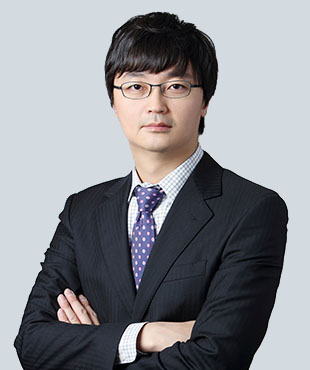Find out more about our latest publications
Research Series 15-03 May. 07, 2015
- Research Topic Capital Markets
- Page 261
The Korean equity market has seen a remarkable growth over the last 25 years. In the KOSPI market space, market capitalization rose from 66 trillion won in 1990 to 1,212 trillion won in 2013, an 18-fold increase, and also trading volume from 53 trillion won to 884 trillion won during the same period. But, in recent years, the equity market appears to have lost momentum. Trading volume (per month) reached a peak at 193 trillion won in April, 2011, and then fell rapidly to 81 trillion won in 2013. Likewise, market capitalization has been moving up at a slow pace, from 1,000 trillion won in 2011 to 1,200 trillion won in 2013. Turnover has been decreasing as well, and its slowdown started much earlier than trading volume and market capitalization. Monthly turnover declined from 43% in 1999 to 7% in 2013.
Changing composition of trading volume by investor type is one of the key reasons for falling turnover. Individual investors, exhibiting relatively higher turnover, make up a smaller portion of total trading volume, and their turnover is much lower than before. This is mainly because households have become more financially constrained, resulting in lower households’ savings flowing into the equity market. Individual investors’ trading behavior is changing as well. They trade less after years of trading losses, and exhibit less irrational trading behaviors.
Second, a large fraction of traditional equity investors have moved to alternative investment vehicles such as ETF, ELS, and DLS. Individual investors account for 30~40% of ETF trading volume and about half of ELS/DLS trading volume. Third, as a result of low volatility, day traders and hedgers have been less active. Lastly, in the face of low economic growth and aging, investors prefer safer financial products to equity investments.
A decrease in the level of trading activity may not result in market quality reduction. Suppose that the level of trading volume is mainly driven by investors’ irrational trading behaviors. If so, market efficiency can be rather improved as trading volume declines. This paper finds evidence that several price efficiency measures (autocorrelations of price changes, variance ratio, price discovery, etc.) are not negatively affected by decreased trading volume.
Trading activity will continue to decline mainly due to changes in the structure of the economy including slow economic growth and population aging. Against this backdrop, market participants and policy makers will need new strategies for financial market developments. The equity market needs a diverse group of institutional investors. In addition to long-term investors, short-term market makers are also required for the provision of liquidity. Also, institutional investors should consider the use of more sophisticated trading strategies, such as algorithmic trading and transaction cost analysis, to deal with lower liquidity as a result of decreasing individual investors’ trading volume. Lastly, active exercise of voting rights can greatly improve transparency and corporate governance, enhancing investment performances, and eventually quality of the equity market.
The Korean equity market is undoubtedly at a crossroads in its history. A large number of individual investors are moving out of the equity market, leading to substantially lower level of trading activity measured by trading volume and turnover. But, notice that market quality has not declined. All in all, the market is now less active, but does not exhibit lower quality. This requires market participants and policy makers to devise new strategies for financial market developments and economic growth.

